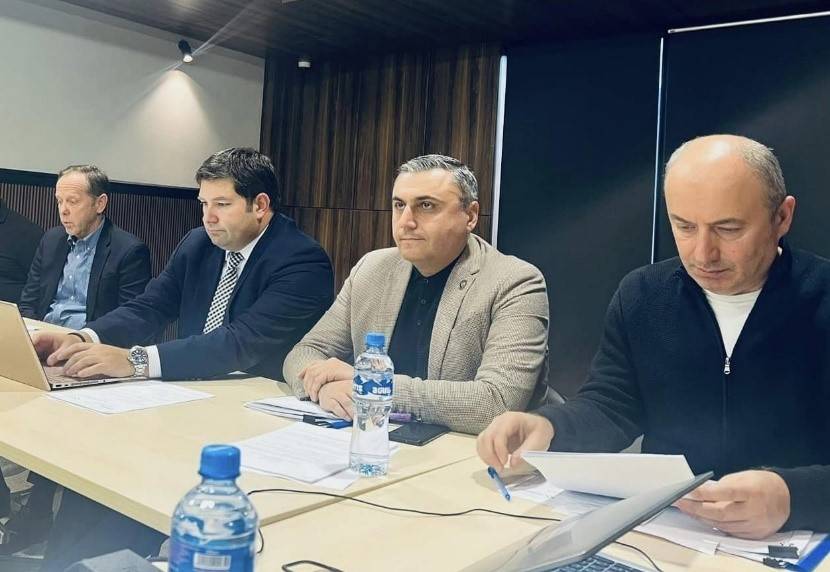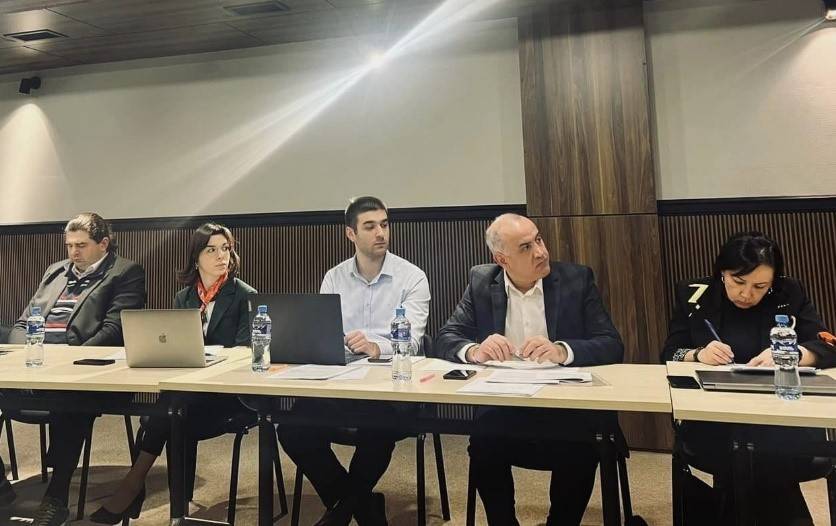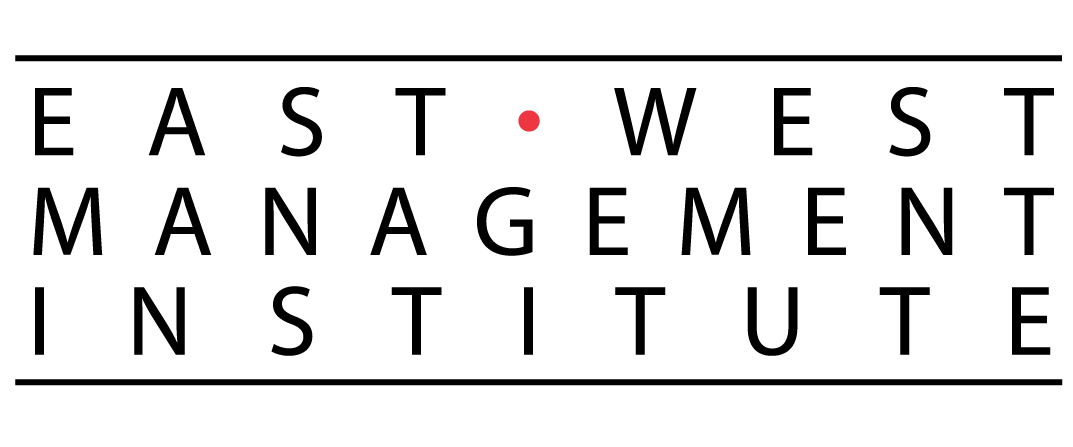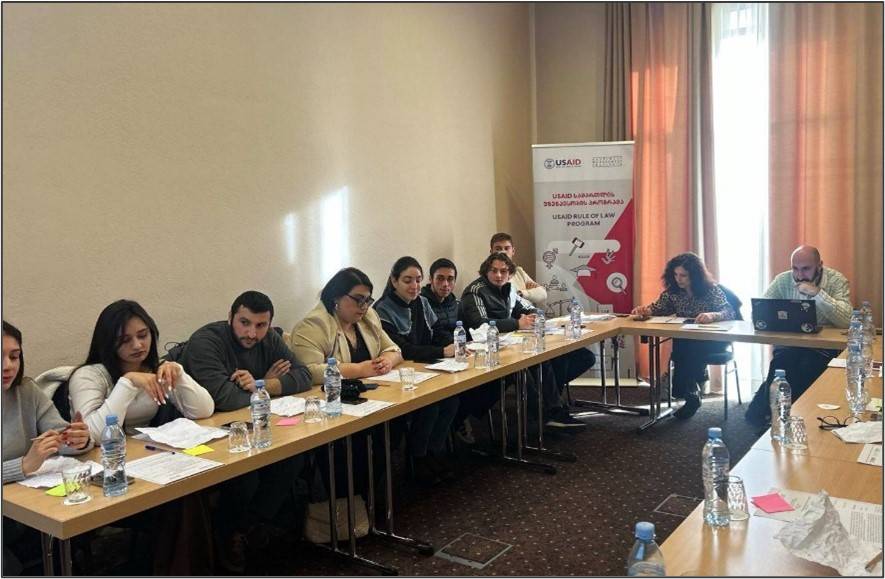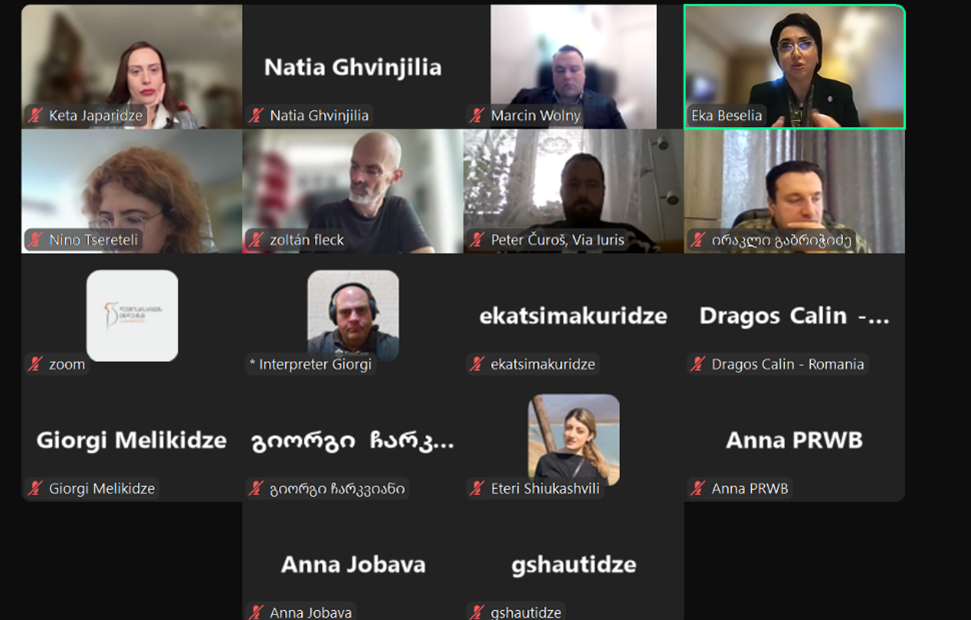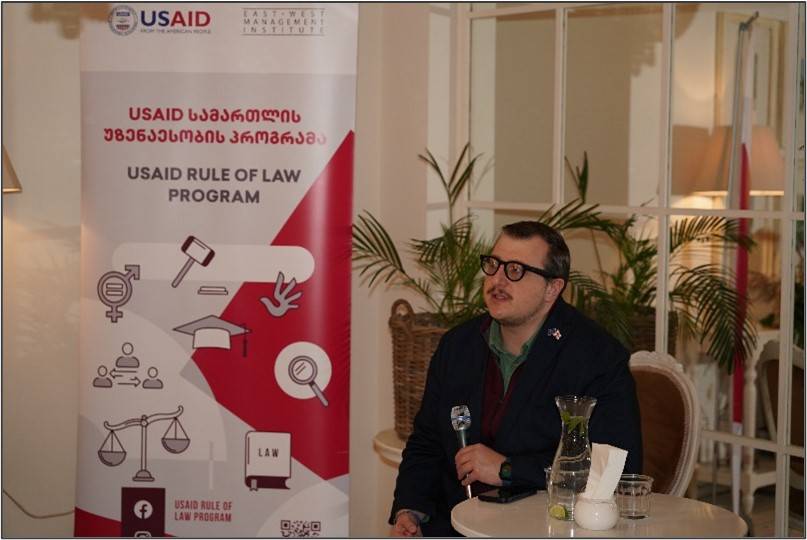Mediators Association of Georgia and Government Policymakers Consider Legislative Amendments Regarding Mediation Practice
On February 10-11 in Gori, the USAID Rule of Law Program (Program) and Mediators Association of Georgia (MAG) took a step toward improving the landscape of dispute resolution in Georgia by convening a group MAG experts and state institutions to discuss a package of changes to the laws related to mediation MAG had submitted to parliament on January 24, 2024.
First Deputy Chair of Legal Affairs Committee of Parliament Davit Matikashvili, and Program Deputy Chief of Party, Herb Bowman welcomed the 16 participants which included Deputy Chair of the Legal Affairs Committee of the Parliament, Guram Macharashvili; Head of Staff Committee of the Legal Affairs Committee at the Parliament, Levan Kasradze; Lead Specialist of the Parliamentary Committee of Legal Affairs, Giorgi Khachvani; Head of Department of Legal Drafting at the Ministry of Justice (MOJ), Irina Tsakadze; Head of the Legal Department at the High Council of Justice, Giorgi Pavladze; as well as MAG board and ethics commission members.
The proposed legislative changes address several important aspects of mediation, with the goal of streamlining procedures and fortifying the legal framework supporting this dispute resolution mechanism. One of the key objectives of the proposed changes is to simplify the procedures for the court's approval of mediation settlements. Additionally, the introduction of a Continuous Professional Development (CPD) system in the Law on Mediation will support strengthening the skills of mediators to better serve the profession.
The proposal also seeks to empower mediators by granting them the right to appeal MAG’s Ethics Commission decisions to the Supreme Court's Discipline Committee, similar to the privileges enjoyed by members of the Georgian Bar Association. This move underscores the commitment to uphold ethical standards and procedural fairness within the mediation framework.
Addressing the financial aspect of mediation, the proposed changes include amendments regarding the return of court claim filing fees. Currently, there exists a discrepancy which results in mediation settlements in which the claimant need only return 70% of the filing fee, as opposed to full reimbursement as is the case of court settlements. To encourage mediation the proposed amendment considers a 100% return of filing fees in mediation settlements, aligning it with the practice observed in court settlements.
The proposal advocates for the inclusion of provisions mandating explicit consent for party representation in mediation procedures. This provision underscores the importance of informed consent and seeks to promote transparency and accountability in the representation process, thus bolstering trust and confidence in the mediation process.
By meeting’s end, the participants agreed in regard to the main parts of the legislation. Discussions revealed however, that the draft will need further adjustments to the text. The participants expressed their willingness to continue working together to achieve this. Representatives of the Ministry of Justice and High Council of Justice expressed their intention to provide their written remarks to the MAG. MAG will make the changes in the draft and then send it to Parliament’s Legal Committee staff. It is expected that Parliament will continue working with the authors of the package and eventually submit for passage.
